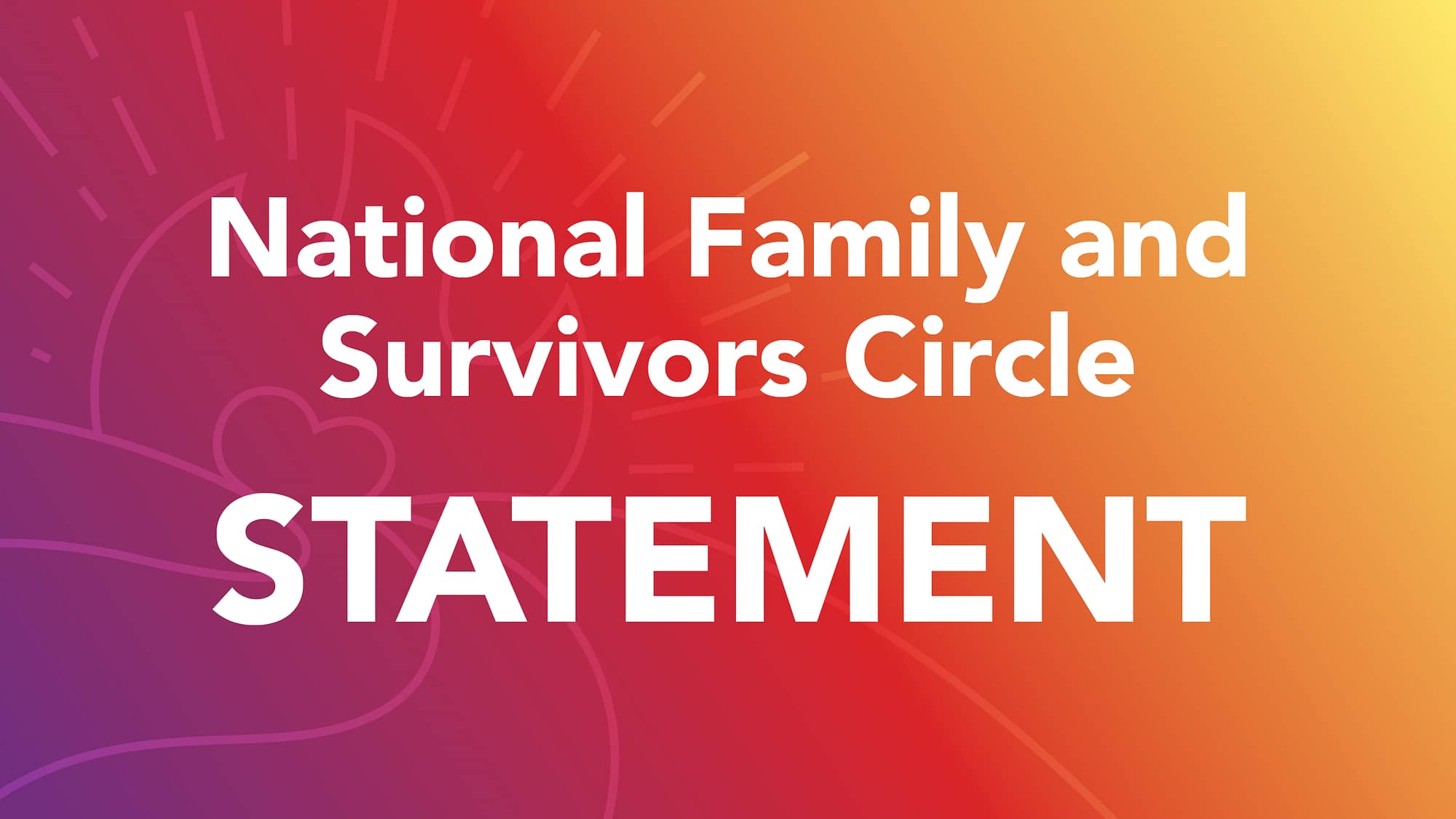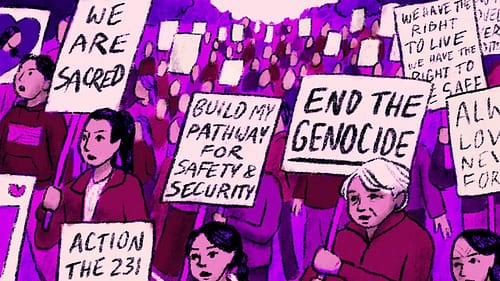December 14, 2022
Over ten days have passed since Winnipeg Police Service (WPS) announced the arrest of alleged serial killer Jeremy Skibicki, who is accused of the murders of four Indigenous women: 24-year-old Rebecca Contois, 26-year-old Marcedes Myran, 39-year-old Morgan Harris, and Buffalo Woman. In this time, WPS has declined to search the Prairie Green landfill north of Winnipeg, denying the request of the families of Marcedes and Morgan, whose remains are believed to be there.
Hilda Anderson-Pyrz, Chair of the National Family and Survivors Circle, says, “It is unacceptable for the Winnipeg Police Board to place the responsibility on Indigenous communities to lobby for loved ones to be uncovered in landfills in order to give them a proper burial.”
This indignity is yet another way in which the lives of missing and murdered Indigenous women, girls, and gender diverse people are devalued, and their families, as well as survivors of gender-based violence, are ignored.
These responses are rooted in systemic and structural racism. As Cambria Harris, the daughter of Morgan Harris, stated at the AFN Special Chiefs Assembly on December 8th, “We saw this happen with Indian Residential Schools, and here you are once again creating unmarked graves of Indigenous peoples.”
In order to combat this systemic racism, it is crucial for police forces to fulfill their obligations towards the 231 Calls for Justice from the Final Report of the National Inquiry into Missing and Murdered Indigenous Women and Girls. In particular, Call for Justice 9.2i calls on all actors in the justice system, including police services, to “Review and revise all policies, practices, and procedures to ensure service delivery that is culturally appropriate and reflects no bias or racism toward Indigenous Peoples, including victims and survivors of violence.”
In addition, law enforcement agencies must ensure the voices of families and survivors are centred and supported by everyone across the country in their journey for the dignity and justice of their loved ones.
As the National Inquiry travelled from coast to coast, hundreds of families and survivors gave powerful testimonies regarding the failures of police forces to take the cases of the missing or murdered loved ones seriously, to provide the resources necessary to ensure justice could be carried out and those lost to be treated with dignity, and to keep Indigenous women, girls, and 2SLGBTQQIA+ people safe.
This should be an opportunity for WPS to set a new precedent in how it deals with and treats the families of missing and murdered Indigenous women, girls, and 2SLGBTQQIA+ people.
But change will only happen if WPS — along with all police forces — approach these situations from a solutions-driven and trauma-informed place, focusing on what is possible rather than using the word “impossible” as a shield against accountability.
—
We understand that this subject matter is difficult for many people in our community. If you require immediate support, please contact the national, independent toll free 24/7 support line at 1-844-413-6649 to speak to a counsellor. The service is available in English, French, Cree, Anishnaabemowin (Ojibway), and Inuktitut.
About the National Family and Survivors Circle (NFSC)
The NFSC comprises First Nations, Inuit, and Métis women from diverse backgrounds who use their lived expertise to advocate for centring the voices of families of missing and murdered Indigenous women and girls, survivors of gender-based violence, and 2SLGBTQQIA+ people, and made significant contributions to the 2021 National Action Plan.
For more information and to book interviews, please contact: media@emdashagency.ca




